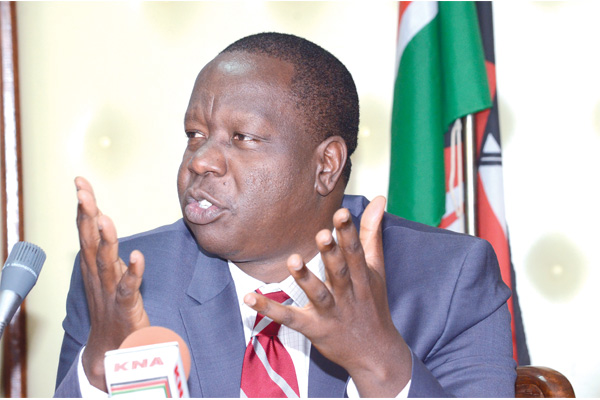One does not need to be an expert to know when basic system failure erupts. A typical system failure has far-reaching effects – mostly unpleasant and unwanted. This is why Kenyan opposition lawmakers are calling on the government to investigate the failure of 90 percent of the 600,000 students who took the 2017 secondary education exams. However, the calls run counter to the position of the Minister of Education, Fred Matiangi, who has publicly expressed satisfaction with the results.
The opposition lawmaker, Caleb Amisi, said parliament needed to be told in clear terms what led to only 10 percent of students scoring high enough to enter the nation’s university. He did not mince words while chatting with reporters in the capital, Nairobi. “Kenya National Examination Council must be ordered to prepare and present a comprehensive report over this perceived mass failure, and an independent investigation should as well be incorporated,” MP Amisi said. “This should be conducted by some of the most credible auditing companies in Kenya.”
The results sparked uproar among parents, teachers and others concerned about the fate of the students and the quality of Kenya’s education system. A key question is what caused the high failure rate. Was it the fault of the students, the teachers, the curriculum, or an accelerated grading process that saw educators plow through the exams in just three weeks?
Another opposition lawmaker, Mark Nyamita, is worried that if the problem is not fixed in good time millions of young Kenyans will be barred from higher education. “If this goes on in this government over the next five years, we are going to have a whopping 2.5 million-plus people with their future shuttered,” he argued.
Some officials explained that the mass failure resulted from efforts to reduce cheating. In an interview with reporters, Education Minister Fred Matiangi hinted that such an explanation might be true, pointing out that as far as he was concerned, the results reflect the real state of Kenyan education. “I am very satisfied with the results we had in the last two years, 2016 and 2017, because we have lived a lie for such a long time,” Matiangi said. “Time is here for us now to deal with the truth.”
Calls are growing for a national conference to resolve the crisis and decide what to do about the students who failed the exams. The issue is expected to be discussed in the National Assembly next month.


















